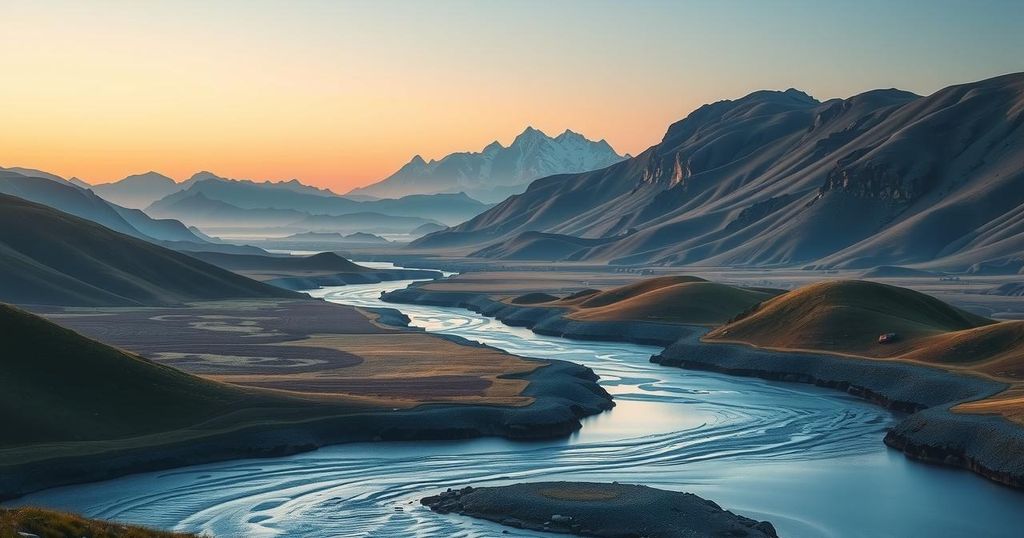Rwandan President Paul Kagame has firmly criticized international backlash regarding Rwanda’s support for M23 rebels, who have captured Goma and are advancing toward Bukavu. This escalation raises concerns about renewed extensive conflict in eastern Congo, reflecting a history of Rwandan interventions since the genocide. International responses include potential aid cuts from the US, Germany, and Britain.
Rwandan President Paul Kagame has responded defiantly to international criticism regarding his country’s involvement in the ongoing conflict in eastern Democratic Republic of Congo. He stated that Rwanda is ready for potential confrontation necessary to protect its interests following the recent territorial gains of M23 rebels, which include the strategic city of Goma. The escalation of violence has raised concerns about a new extensive conflict in the region, recalling Rwanda’s historical interventions in Congo since the Rwandan genocide of 1994.
The M23 rebels, reportedly backed by Rwandan forces, have successfully captured Goma and are advancing south toward Bukavu, raising alarm among regional stakeholders. The United States has expressed deep concern over these developments, while Germany has suspended aid negotiations. Additionally, Britain signaled potential consequences for its yearly financial assistance to Rwanda, reflecting the international community’s increasing dismay over the situation.
At an East African Community summit, President Kagame criticized neighboring nations for their failure to effectively address the violence between Congo and the M23 group. He questioned the lack of proactive leadership, suggesting that the ongoing crisis was foreseeable. Congo’s President Felix Tshisekedi, who did not attend the summit, has vowed to launch military actions to reclaim lost territories from the rebels.
Kagame also responded to South African President Cyril Ramaphosa regarding the escalating violence, emphasizing the role of South Africa in relation to militias tied to perpetrators of the Rwandan genocide. Kagame rebuffed the idea that South Africa could serve as a peace mediator, indicating Rwanda’s willingness to confront any threats posed by such factions.
Following the capture of Goma, M23 forces have been advancing towards Bukavu, attempting to exert control in a manner not seen since the end of the major Congolese war two decades ago. There have been clashes with Congolese troops as the M23 sought to capture additional territories yet faced setbacks in specific localities. Rwanda has framed its support for M23 as a defensive move against threats from other armed groups operating within Congo, a stance that has not been accepted by the Congolese government, which accuses Rwanda of resource exploitation.
The ongoing conflict in eastern Congo has roots in the historical tensions following the Rwandan genocide in 1994, where ethnic strife led to significant instability in the region. Rwanda has a track record of intervening in Congolese affairs, often through proxy militia groups. The resurgence of the M23 rebel group is seen as a serious escalation, with implications for regional security as the group seeks to control vital territories.
The situation in eastern Congo remains precarious, with rising tensions as M23 rebels gain ground, and neighboring countries expressing concern over Rwanda’s role. Kagame’s assertive stance and refusal to back down amid international pressures underscore the complexity of the conflict and the historical grievances underpinning current actions. With regional dynamics at play, the risk of a broader conflict looms, calling for urgent diplomatic interventions.
Original Source: www.usnews.com




